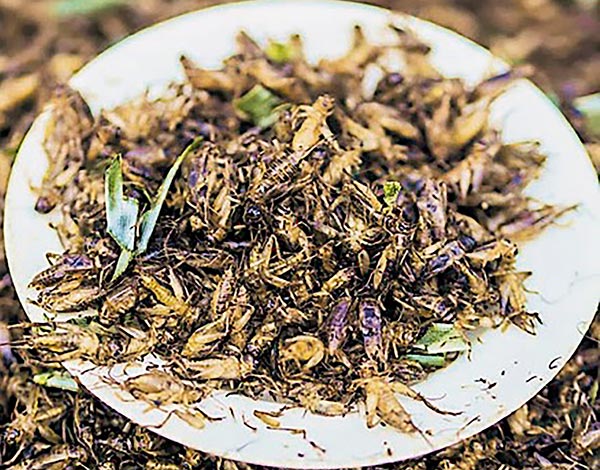Insects, the food of the future
During the last decade food insecurity became a major global issue. More so, the access to nutritious animal protein sources presents many challenges. With an expanding population there is an ever-increasing demand on food production systems. The FAO estimates that the global food production will need to expand by at least 60% from current production level to meet global food requirements in 2050.
To meet the challenge of providing a sustainable and nutritious food source to feed the expanding population, there will be clearly a need for more sustainable and more productive agricultural systems. Domestication and mass production of edible insect may just be the antidote that could provide a sustainable, cost effective and high-quality alternative source of dietary protein.
The percentage of the Lao population that regularly consumes insects is among the highest in the world. Lao people have always consumed insects, similar to their contemporaries in Thailand and other Southeast Asian countries. Insect consumption in Lao PDR is highly cultural and people consume insects as snacks or sometimes as a main food item.
With the global need for food security, there was a direct interest to develop an insect farm at the PTK permaculture research and demonstration farm. Besides the insect farm “for food and feed”, insect farming modules were added to the existing Permaculture curriculums. As of next school year “Insect for Food” will also become part of the official Lao elementary school teaching curriculum. With the support from the Child Dream Association, PTK can reach out to several Lao schools and their communities to expand classroom activities and to start an insect farming project. Since young girls and boys are often active at home with food preparation, the concept is to furthermore enforce their interest in biodiversity and ecological conservation efforts.
Overall aim of the insect farming project is to teach rural women simple, inexpensive, and sustainable organic methods of home growing edible insects, addressing two thematic areas:
1) Economic empowerment – better food security and improved livelihoods by reducing the dependency on collecting in the wild, which also weakens the regeneration potential of local insect populations, reduces biodiversity and the availability of insects for food over time. Home growing also reduces time spent on collecting and creates revenues of the production that can be sold.
2) Health and food security – Improved nutrition with constantly available sustainable organic home-production also eliminates the risk of eating in the wild collected insects that have been exposed to chemicals and pesticides.



